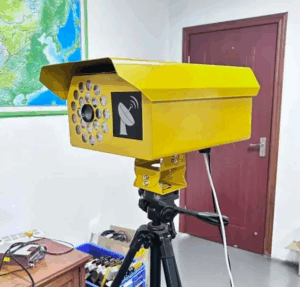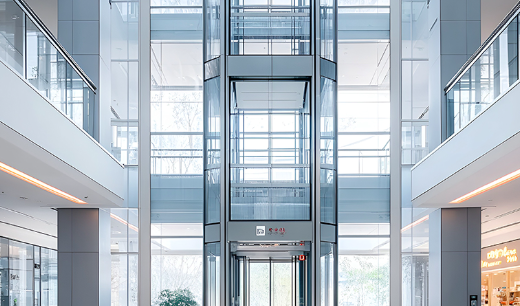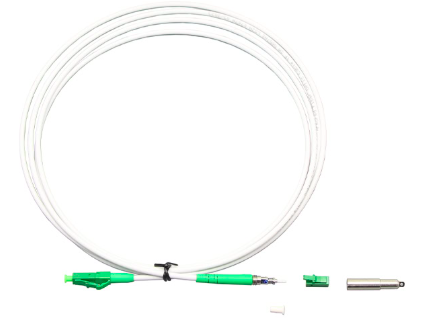目录
Traffic accidents remain one of the most pressing challenges on today’s roads. Communities of all sizes are searching for solutions that improve driving safety without frustrating drivers.
While speed limit signs and traffic tickets are well-known, their impact is often limited. Radar speed signs have emerged as a practical alternative, providing drivers with real-time feedback that can help foster safer driving habits.

Real-Time Speed Awareness
The most important feature of radar speed signs is the ability to display a driver’s current speed instantly. Unlike a fixed number on a roadside sign, these devices adapt to the vehicle approaching them. This real-time response often catches the driver’s attention more effectively than a static rule.
- Many drivers are not intentionally reckless; they simply underestimate how fast they are traveling, particularly on wide streets or downhill slopes.
- When the display shows their speed above the posted limit, the natural reaction is usually to slow down immediately.
- This instant correction helps lower speeds without confrontation. Instead of waiting for a ticket in the mail or being pulled over, drivers see a reminder in the moment, giving them the chance to make safer decisions on their own.
Safer Roads in Sensitive Zones
Certain places demand extra caution, yet they are also where accidents most often occur: school areas, busy intersections, and residential neighborhoods. Radar speed signs have shown strong results in these high-risk spots.
- In front of schools, the signs act as a visible warning for drivers to check their speed as children cross.
- On residential streets, they reassure families who worry about fast-moving cars near their homes.
By gently reducing vehicle speeds, these signs cut the risk of both minor and major collisions. Even a slight drop in speed can mean more time for a driver to react and stop safely, turning what could be an accident into a near miss.
Encouraging Safer Habits Without Penalties
One of the main reasons radar speed signs are welcomed by both drivers and residents is that they do not issue fines. Instead, they focus on education and awareness.
- Drivers are more likely to view them as helpful rather than as a threat.
- Because they are not tied to punishment, compliance feels voluntary, which reduces resistance and improves community acceptance.
This approach creates a more cooperative environment on the road. People are reminded of their responsibility without the negative feelings that often come with traditional enforcement methods.
Working Alongside Enforcement Teams
Although radar speed signs cannot replace traffic officers, they support law enforcement in meaningful ways. By calming everyday traffic, they allow police to direct resources toward drivers who are deliberately reckless or involved in more serious violations.
- Many radar signs can also log vehicle data, such as average speeds or peak traffic hours.
- This information helps authorities decide where patrols are most needed or where long-term changes to road design should be considered.
As a result, the signs are not just reminders to individual drivers—they also serve as tools that guide larger traffic management strategies.
Affordable and Flexible for Local Governments
Communities often face budget limitations when planning road safety improvements. Physical changes like speed humps or redesigned intersections require significant investment and construction time.
- Radar speed signs stand out because they are comparatively low-cost and easy to move.
- A single sign can be installed quickly and begin influencing behavior right away.
- Cities can rotate portable signs through different problem areas, making them versatile for changing conditions.
- This adaptability is especially valuable for smaller towns, where resources are limited but safety concerns are just as real.
Impact on Long-Term Driving Behavior
The usefulness of radar speed signs extends beyond a single encounter. Drivers who repeatedly pass the same sign often begin to adjust their behavior more consistently.Over time, this shapes safer habits that last even when the signs are not present.
- Regular commuters learn to expect the reminder, so they naturally check their speed as they approach.
- Younger drivers benefit greatly, as the visible feedback reinforces lessons about responsible driving early on.
- These repeated interactions create lasting improvements that contribute to overall road safety.
Building Trust Between Drivers and Communities
Local authorities can show they are prioritizing safety rather than revenue from tickets.Drivers, meanwhile, see the signs as guidance instead of punishment.
This balance helps build a stronger sense of cooperation and trust, which is essential for sustaining safer roads in the long run.
Conclusion
So, can radar speed signs prevent accidents? The answer is clear: yes. By delivering immediate feedback, reducing risky speeds in sensitive areas, and encouraging lasting behavior changes, these signs play a meaningful role in accident prevention.
They are affordable, adaptable, and widely accepted by both drivers and communities.While they may not eliminate speeding altogether, radar speed signs create safer conditions that lower the chances of collisions and make roads more secure for everyone.
For towns and cities seeking straightforward tools that bring real results, these signs remain one of the most effective measures available.
0








